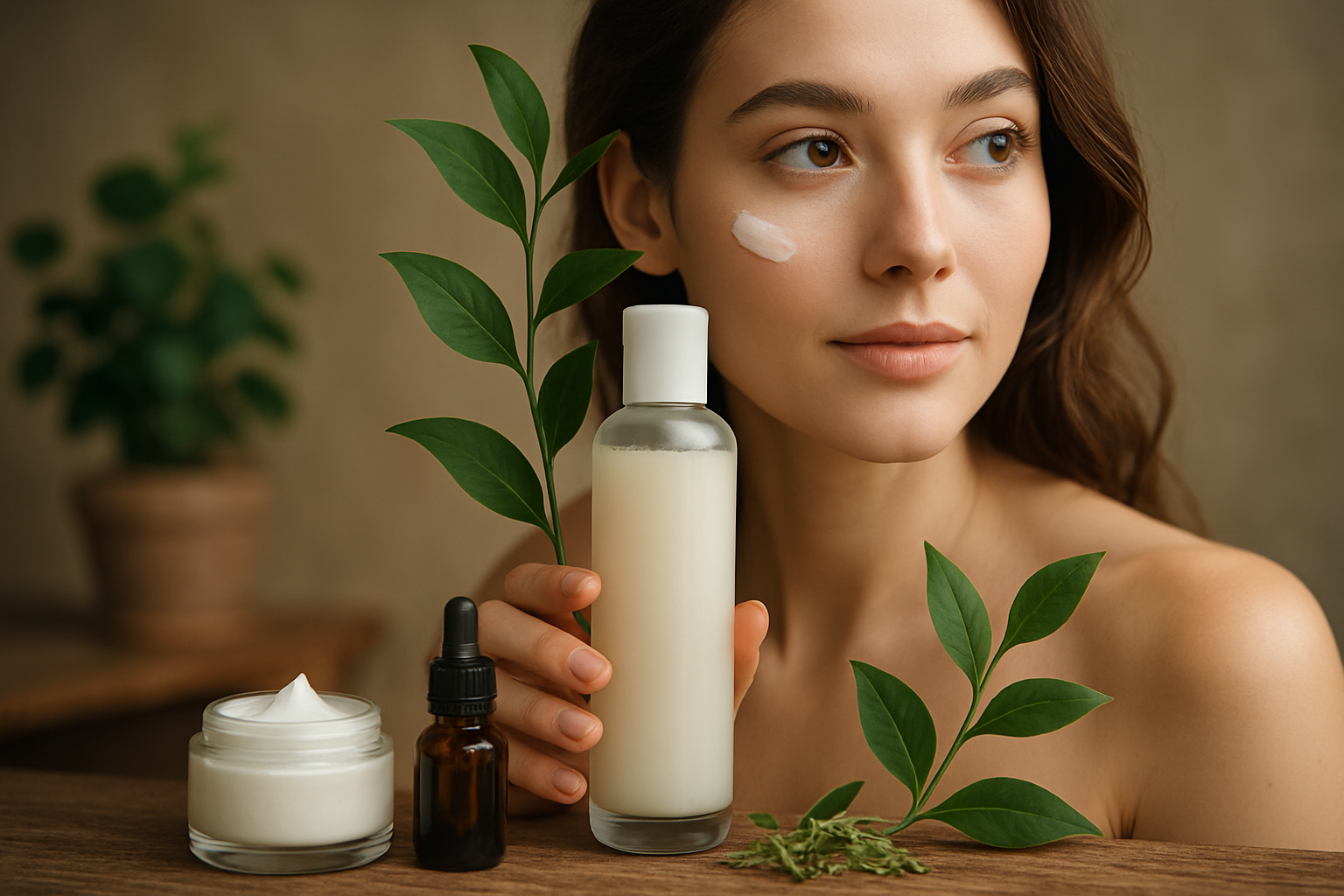The Art and Science of Skincare: Navigating a Complex World
In the realm of beauty and self-care, few topics generate as much interest, debate, and innovation as skincare. From ancient remedies to cutting-edge formulations, the quest for healthy, radiant skin has been a constant throughout human history. Today, skincare stands at the intersection of science, technology, and consumer culture, with a global market valued at billions of dollars. As consumers become more educated and discerning, the industry continues to evolve, offering an ever-expanding array of products and treatments. This article delves into the multifaceted world of skincare, exploring its historical roots, current trends, and the complex interplay between marketing, science, and consumer behavior that shapes this dynamic field.

Fast forward to the present day, and the skincare industry has undergone a remarkable transformation. Modern skincare products are the result of extensive research and development, combining natural ingredients with synthetic compounds to address a wide range of skin concerns. Advanced technologies such as nanotechnology, microencapsulation, and biotechnology have revolutionized product formulations, allowing for more effective delivery of active ingredients.
The Science Behind Skincare
At the heart of modern skincare lies a deep understanding of skin biology and chemistry. The skin, our largest organ, serves as a protective barrier against environmental stressors, regulates body temperature, and plays a crucial role in our overall health. Skincare products are designed to support and enhance these natural functions while addressing specific concerns such as aging, acne, hyperpigmentation, and sensitivity.
Key ingredients in skincare products include:
-
Antioxidants: Molecules that neutralize free radicals, protecting skin from oxidative stress and premature aging.
-
Retinoids: Vitamin A derivatives that promote cell turnover and collagen production.
-
Peptides: Short chains of amino acids that can stimulate collagen synthesis and improve skin texture.
-
Hyaluronic acid: A naturally occurring substance that attracts and retains moisture in the skin.
-
Alpha and beta hydroxy acids: Exfoliating agents that remove dead skin cells and promote cell renewal.
Understanding the science behind these ingredients allows consumers to make more informed choices and tailor their skincare routines to their specific needs.
The Rise of Personalized Skincare
As our understanding of skin biology has grown, so has the recognition that everyone’s skin is unique. This realization has led to a shift towards personalized skincare approaches. Advances in technology, such as AI-powered skin analysis tools and DNA testing, now allow for highly customized product recommendations and formulations.
Personalized skincare goes beyond simply choosing products based on skin type. It takes into account factors such as genetics, lifestyle, environment, and even the microbiome – the community of microorganisms living on our skin. This holistic approach recognizes that effective skincare is not one-size-fits-all but rather a tailored strategy that evolves with an individual’s changing needs.
The Clean Beauty Movement
In recent years, the clean beauty movement has gained significant traction, reflecting growing consumer concerns about the safety and environmental impact of skincare products. Clean beauty advocates for products that are free from potentially harmful ingredients such as parabens, sulfates, and synthetic fragrances. This movement has pushed the industry towards greater transparency in ingredient sourcing and formulation.
However, the definition of “clean” beauty remains somewhat ambiguous, leading to debates within the industry and among consumers. While some view clean beauty as a positive step towards safer, more sustainable products, others argue that it can sometimes lead to fearmongering and the rejection of safe, effective ingredients based on misunderstandings or pseudoscience.
The Impact of Social Media on Skincare Trends
Social media platforms, particularly Instagram and TikTok, have become powerful influencers in the skincare world. These platforms have democratized beauty advice, allowing consumers to share their experiences and routines directly with one another. “Skinfluencers” – individuals who have built large followings by sharing skincare content – now wield significant influence over consumer purchasing decisions and product trends.
While social media has undoubtedly increased access to skincare information and fostered communities around skin health, it has also contributed to the spread of misinformation and potentially harmful trends. The rapid cycle of viral skincare “hacks” and product recommendations can lead to confusion and unrealistic expectations among consumers.
The Future of Skincare: Sustainability and Innovation
As we look to the future of skincare, two key trends are likely to shape the industry: sustainability and technological innovation. Consumers are increasingly demanding eco-friendly packaging, ethically sourced ingredients, and transparent supply chains. This shift is pushing companies to rethink their practices and invest in more sustainable alternatives.
At the same time, advancements in fields such as bioengineering and artificial intelligence are opening up new possibilities for skincare. From lab-grown ingredients that reduce environmental impact to smart devices that can analyze skin condition in real-time, the convergence of technology and beauty is set to redefine our approach to skincare.
Navigating the Skincare Landscape
With the wealth of information and products available, navigating the skincare landscape can be overwhelming for consumers. Education plays a crucial role in helping individuals make informed decisions about their skincare routines. Understanding one’s skin type, concerns, and the basics of skin biology can go a long way in selecting appropriate products and treatments.
It’s also important to approach skincare with realistic expectations. While products can certainly improve skin health and appearance, they are not magic solutions. Factors such as genetics, diet, stress, and overall health all play significant roles in skin condition. A holistic approach that considers lifestyle factors alongside topical treatments is often the most effective path to healthy skin.
The Psychology of Skincare
Beyond its physical effects, skincare plays a significant role in mental and emotional well-being. The ritualistic nature of skincare routines can provide a sense of control and self-care, particularly during times of stress. For many, investing time and effort into skincare is a form of self-love and mindfulness.
However, the pressure to achieve “perfect” skin, often fueled by social media and advertising, can also lead to anxiety and negative self-image. It’s crucial to maintain a balanced perspective, recognizing that healthy skin comes in many forms and that perfection is neither attainable nor necessary.
In conclusion, the world of skincare is a fascinating blend of science, culture, and personal care. As our understanding of skin biology deepens and technology continues to advance, we can expect to see even more innovative approaches to skincare in the future. By staying informed, approaching trends with a critical eye, and focusing on overall skin health rather than perfection, consumers can navigate this complex landscape to develop routines that truly work for them. Ultimately, the goal of skincare should be to support healthy, comfortable skin – a foundation for confidence and well-being in our daily lives.




